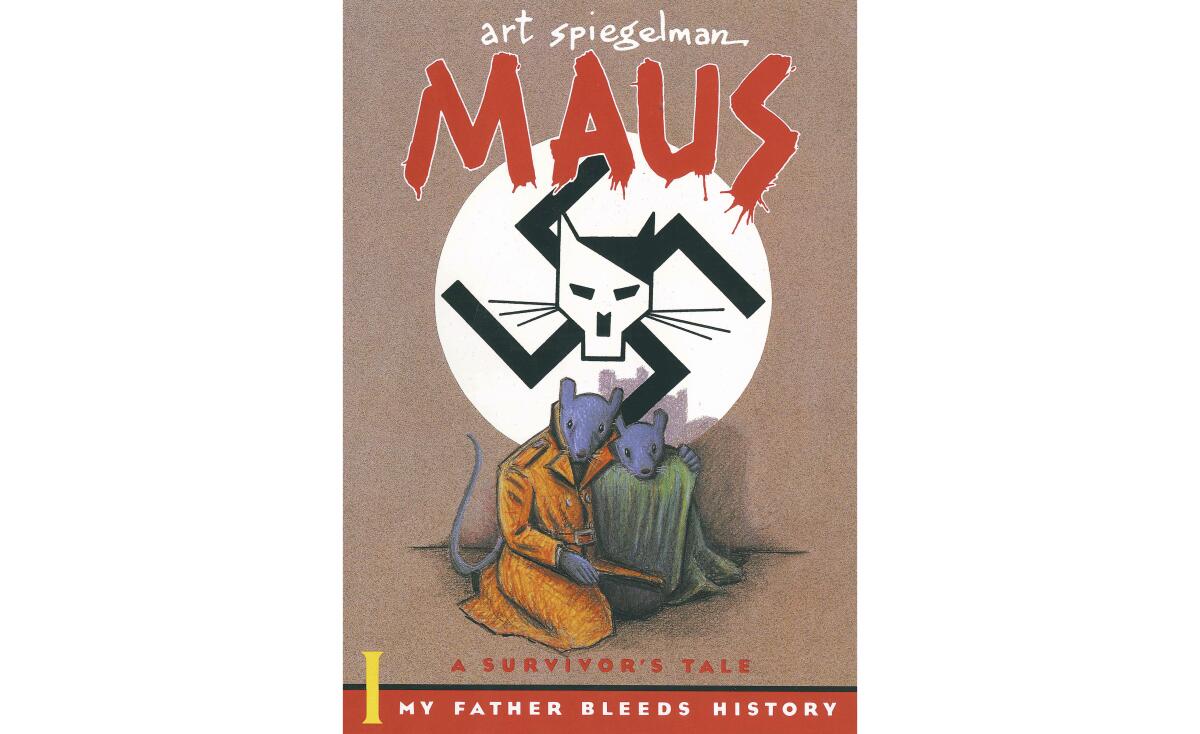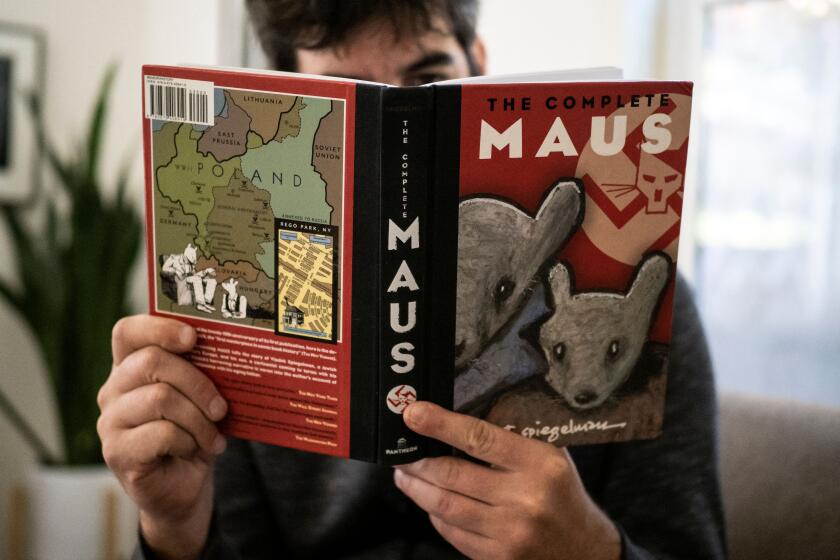‘Maus’ ban makes Art Spiegelman’s Holocaust graphic novel an Amazon bestseller

- Share via
Two editions of Art Spiegelman’s graphic novel “Maus,” about his parents’ experiences during the Holocaust, have become bestsellers after being banned by a Tennessee school board earlier this month.
“The Complete Maus” (1996) and “Maus I: A Survivor’s Tale: My Father Bleeds History” (1986) broke onto Amazon’s top 20 list over the weekend and, as of Monday morning, hold the No. 2 and No. 3 spots on the bestseller list, respectively. Peter Schweizer’s “Red-Handed: How American Elites Get Rich Helping China Win” is currently perched in the No. 1 spot.
Spiegelman’s books are in limited supply and not available for delivery from Amazon until mid-February and early March, according to the e-commerce giant.
Neither book was in the top 1,000 at the beginning of last week, the Associated Press reported.
“Maus,” which was first serialized in Spiegelman’s 1980 comic anthology “Raw,” is set in 1940s Poland during the Holocaust and chronicles his parents’ internment in Auschwitz, depicting Nazis as cats and Jewish people as mice.
Pulitzer Prize winner Art Spiegelman has denounced the ‘absurd’ removal of his graphic novel ‘Maus,’ about the Holocaust, from school libraries.
Earlier this month, the McMinn County School Board in Tennessee voted to ban the book over concerns about “rough” language and a nude drawing of a mouse (meant to be the author’s mother), according to meeting minutes posted to the district website. “Maus” was part of the eighth-grade English language arts curriculum, and its removal — sparked by a discussion about how to best teach students about the Holocaust — has drawn international attention.
Spiegelman, 73, who has grown used to his book being banned, called the recent removal “absurd” and “myopic.”
“They’re totally focused on some bad words that are in the book,” he told CNN last week. “I can’t believe the word ‘damn’ would get the book jettisoned out of the school on its own, but that’s really where the genuine focus seems to be.
“I think they’re so myopic in their focus and they’re so afraid of what’s implied and having to defend the decision to teach ‘Maus’ as part of the curriculum that it led to this kind of daffily myopic response,” he added.

The school board’s decision comes amid a wave of conservative-sponsored legislation and other actions to pull books from schools, with other banned works including Toni Morrison’s “The Bluest Eye” and Harper Lee’s “To Kill a Mockingbird,” AP reported.
“Maus,” which won a Pulitzer in 1992, is published by the recently expanded Pantheon Books, which now operates as an autonomous imprint within the Penguin Random House conglomerate.
Pantheon and Schocken’s hire of Lisa Lucas in 2020 as president and publisher was seen as part of a larger push to make book publishing — and the books published — more inclusive. Lucas recently hired David Treuer to serve as the first Native American editor at a major imprint. She tweeted Sunday that she’d “love to see everyone’s copies of Maus.”
Increased sales of “Maus” likely will help Lucas as she embarks on her second year at Pantheon, bolstering the optimism she expressed in a conversation with The Times in 2020: “People are starting to see how important books are to us culturally, and we can capture not just the energy of change, of post-pandemic — should we ever get there — but also just the energy of people remembering how vital books are to us in a moment of great duress. I think that’s a nice runway into a bright future.”
Asked for comment, Pantheon forwarded a bookmark Spiegelman had made for libraries in 2014. Featuring a cartoon mouse — akin to his “Maus” illustration — reading, it says: “Keep your nose in a book — and keep other people’s noses out of which books you choose to stick your nose into!”
More to Read
Sign up for our Book Club newsletter
Get the latest news, events and more from the Los Angeles Times Book Club, and help us get L.A. reading and talking.
You may occasionally receive promotional content from the Los Angeles Times.









